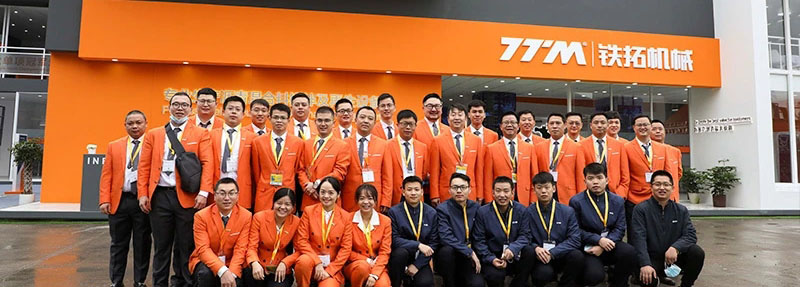Picture this: you’ve just won a three-year highway resurfacing contract, and the first item on your punch-list is “Buy asphalt hot mix plant.” You Google asphalt hot mix plant cost, skim a few ads, and end up more confused than when you started. One supplier quotes $450,000; the next swears you can get started for $200,000. Who’s telling the truth? Let’s break it down—without the marketing fluff.
Why the Price Range Is So Wild
The quickest way to get sticker shock is to assume all plants are created equal. They’re not. A 40 tph (tonnes per hour) mini-counterflow unit with basic pollution controls will land on the lower end, while a 160 tph drum mix monster with a 5-tonne batch hopper, RAP feed, and fiber addition system can easily cruise past $1 million. In other words, capacity and complexity are the two dials that swing the asphalt hot mix plant cost needle hardest.
The Three Pricing Tiers You’ll Actually See
1. Entry-Level Mobile Plants ($180k–$280k)
These are containerized, towable, and perfect for patching crews or remote county jobs. They usually max out at 60 tph and ship with a single bin cold feeder. Sounds cheap, right? Remember, you’ll still drop another $30–$50k on foundations, electrical hook-ups, and the first load of bitumen. Oh, and they sip fuel like a teenager chugs energy drinks—so factor in higher operating cost per tonne.
2. Mid-Range Stationary Plants ($350k–$650k)
Most state DOT work falls here. Expect 80–120 tph, three or four hot bins, and baghouse dust collectors that keep neighbors (and regulators) happy. Add $70k if you want a 15% RAP ring. Add another $40k for an FBJ (fiber & bitumen jet) system. Mid-range is the Goldilocks zone: high enough throughput to make money, low enough capital outlay to keep the bank manager smiling.
3. High-Production Plants ($750k–$1.3M)
Think interstate-grade 160–240 tph with 95% RAP capability, dual recycling rings, and silos that store 300 tonnes. These beasts can hit $1.5 million once you spec-in storage, load-out, and the computerized “plant brain.” But here’s the kicker: they can produce mix for under $11 per tonne when oil is at $450, which is why large contractors swallow the upfront pain.
Hidden Costs Nobody Mentions on the First Call
Let’s get real—procurement teams rarely budget for these:
- Freight: A 40-foot counterflow drum weighs 28 t; shipping from India to Houston runs $18k–$25k, plus port fees.
- Erection: Expect 200–250 man-hours for a mid-size plant. At $80 per union hour, that’s another 20 grand.
- Environmental permits: In California, an air-quality permit alone can take six months and $15k in consultant reports.
- Training: Factory techs fly in for 10 days—$350 per diem, plus business-class tickets. Cha-ching.
All told, hidden extras can add 12–18% to the invoice, so always keep a contingency line.
Used vs. New: Where the Real Bargains Hide
A two-year-old 120 tph plant with < 8,000 operating hours can trade for 55–65 cents on the dollar. Stick to units with complete service logs and ask for an elastomeric coupling inspection report—if the drum has hot spots, you’ll be welding in six months. One more tip: look for sellers upgrading because of spec changes, not because the plant is worn out. That’s how you snag a $600k configuration for $320k and still get warranties on the electrical panel.
Operating Cost: The Number That Matters After Day One
Let’s run quick math on a 100 tph mid-range plant running 2,000 hours per year:
| Item | Annual Spend |
|---|---|
| Diesel (4.2 gal/h @ $3.60) | $30,240 | Electricity (550 kW avg @ $0.10) | $110,000 | Bitumen (120 kt @ $520/t) | $62,400 | Wear parts, screens, belts | $18,500 |
Grand total: about $221k per year—roughly $11 per tonne of mix. Compare that to outsourcing at $28–$32 per tonne, and your payback period clocks in at 3.2 years even after you include the initial asphalt hot mix plant cost.
Financing Tricks That Slash Upfront Cash
Manufacturers like Ammann and Marini offer 5-year 6.9% APR leases that convert to ownership. You’ll still need 20% down, but that’s $100k on a $500k plant instead of half a million. Another route: some banks treat the plant as collateral, letting you borrow against future receivables. Just read the fine print—balloon payments can bite.
How Regional Taxes and Tariffs Swing the Final Figure
Importing Chinese OEMs? The U.S. levied a 25% Section 232 tariff on steel in 2018, and guess what asphalt plants are made of—steel. European manufacturers dodge that bullet but charge 8–10% more base price. Meanwhile, Indian vendors land somewhere in the middle, though freight is longer. Bottom line: geography can nudge your asphalt hot mix plant cost by ±15% before you even fire up the burner.
Smart Questions to Ask Before You Sign
- What’s the guaranteed tonnage before first major overhaul—60,000 t or 120,000 t?
- Can the baghouse handle 50 mg/Nm³ stack emissions if your state tightens rules next year?
- Does the control system spit out .csv logs for DOT audit? (Trust me, auditors love data.)
- Is the burner convertible from diesel to natural gas without voiding warranty?
Ask these, and you’ll filter out the cowboys fast.
Key Takeaway
Sticker prices are only chapter one. Dig into capacity, recycling needs, freight, and financing, and you’ll discover the true asphalt hot mix plant cost for your operation. Do your homework, budget 15% contingency, and you’ll avoid the “wish I’d known” moment six months down the road.

